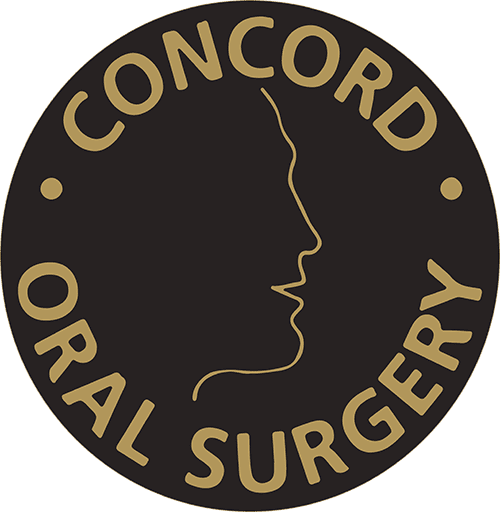Reviewed By Dr. Robert Barron, DMD
Reading Time: 5 minutes
The Canadian Dental Care Plan (CDCP) is a new federal program designed to make dental services more accessible for Canadians without private insurance. If you have questions about what the plan covers, this overview will help you make sense of the details.
At Concord Oral Surgery, we believe in helping patients understand their options, even if they do not receive treatment at our office. While we do not participate in the CDCP program, this article will help you make sense of the new plan and determine your next steps.
Table of Contents
What Is the CDCP?
The Canadian Dental Care Plan is a national dental benefits program funded by the Government of Canada. It was created to reduce financial barriers to dental care for residents who do not have private dental insurance.
Coverage depends on your adjusted family net income and only applies if your treatment is provided by a CDCP-enrolled provider.
The plan includes coverage for:
- Diagnostic services (like exams and X-rays)
- Preventive care (cleanings, fluoride, sealants)
- Restorative services (fillings and crowns)
- Prosthodontic services (partial dentures)
- Oral surgery ( very limited)
Who Qualifies for CDCP Coverage?
To be eligible for CDCP, you must:
- Be a Canadian resident
- Have no private dental insurance
- Have filed a tax return the previous year
- Have an adjusted family net income under $90,000
What Does CDCP Coverage Actually Include?
Your coverage level depends on your adjusted family net income, and determines how much of the CDCP-established fees will be covered. These fees are set by the federal plan and may differ from what oral health providers actually charge.
| Adjusted Family Net Income | CDCP Pays (of CDCP fee) | You Pay (of CDCP fee) |
| Under $70,000 | 100% | 0% |
| $70,000–$79,999 | 60% | 40% |
| $80,000–$89,999 | 40% | 60% |
Important: Even if CDCP covers 100% of the CDCP fee, your provider may charge more than that amount. In that case, you would be responsible for the difference.
Additional fees may apply if:
- The provider’s usual fee is higher than the CDCP-established rate
- You receive treatments that are not covered under CDCP
- You choose to proceed with services before confirming your out-of-pocket costs
Before accepting treatment, always ask your provider:
- Are you enrolled in CDCP?
- Will this procedure be fully covered?
- Are there any additional fees I will owe?
When Does Coverage Begin?
CDCP coverage is being rolled out in phases:
- Seniors 65+: Eligible as of May 2024
- Adults 18–64: Rolling eligibility from June 2024 to early 2025
- Children under 18: Coverage starts based on rollout schedule
Find out if you qualify and apply through the official CDCP website. Once approved, you will receive a start date and instructions on how to use your benefits.
Does the CDCP Cover Oral Surgery?
CDCP covers some medically necessary oral surgery procedures, including:
- Removal of teeth and roots
- Surgical removal of tumours and cysts
- Surgical incisions, including draining
- Treatments for broken jaw bones
- Minimal sedation (conscious)
- Moderate sedation (requires preauthorization)
- Deep sedation (requires preauthorization)
- General anaesthesia (requires preauthorization)
To qualify for reimbursement, the service must be provided by a CDCP-enrolled oral surgeon. Patients must also ensure the procedure is approved under CDCP’s fee schedule.
What It Means if Your Provider Is Not Enrolled in CDCP
Concord Oral Surgery is not enrolled in the Canadian Dental Care Plan. As a private practice, we follow the Ontario Dental Association Fee Guide for specialists and are not bound by the CDCP fee schedule or administrative structure.
Here is what that means for patients:
- We welcome patients without dental insurance and provide expert surgical care tailored to your needs.
- Our team walks you through your treatment plan and ensures you understand the full cost of care before any procedure is scheduled.
- We offer detailed estimates and transparent billing so you can make informed decisions with no surprises.
If you are specifically seeking treatment under CDCP, we encourage you to search for a CDCP-participating provider using the official provider search tool.
Have Questions About Your Oral Surgery Options?
Whether or not you qualify for the Canadian Dental Care Plan, it is important to understand your treatment choices and what they may cost. At Concord Oral Surgery, we are committed to helping every patient make confident, informed decisions about their care.
To learn more about the services we offer or to book an appointment at our oral surgery office in Vaughan, ON, call (905) 669-2616. We are located at 3300 Highway 7 West, Suite 805 Vaughan, ON.
FAQs
Which exams are included under CDCP?
The plan includes complete, routine, specific, and emergency dental exams. Diagnostic X-rays are also covered to support proper diagnosis and treatment planning.
What preventive services does CDCP cover?
Preventive care includes professional cleanings (scaling), fluoride applications to help prevent tooth decay, and dental sealants to protect vulnerable chewing surfaces.
How does CDCP support patients with cavities or tooth damage?
Covered restorative services include permanent and temporary fillings, pain relief for diseased teeth, and treatments designed to restore teeth affected by decay or trauma.
Are root canal procedures part of CDCP benefits?
CDCP includes several endodontic services, such as root canals, pulpectomies, and treatments aimed at reducing infection or relieving pain. Re-treatment of previous root canals may be covered with preauthorization.
What gum and bone treatments are included?
Non-surgical periodontal services are covered, including deep cleanings under the gumline, treatment for dental abscesses, and certain post-surgical evaluations. Bonding for mobile teeth and some follow-up care may require preauthorization.
Does CDCP include coverage for crowns or other advanced restorations?
Basic repairs to crowns and posts are included. Full crowns, cores, and supporting posts are eligible with preauthorization when the tooth cannot be restored with a basic filling.
What options are available for replacing missing teeth?
CDCP covers removable prosthodontics, including complete dentures, partial dentures (with preauthorization), and repairs or relines to existing dentures. Temporary and tissue-conditioning liners are also included.
What surgical services are eligible under CDCP?
Oral surgery coverage includes the removal of teeth and roots, surgical drainage of cysts or abscesses, removal of tumors, and treatment of jaw fractures when medically necessary.
Is sedation or anesthesia part of the plan?
Sedation and anesthesia are covered in specific situations. Minimal sedation is included automatically, while moderate sedation, deep sedation, and general anesthesia require preauthorization.

